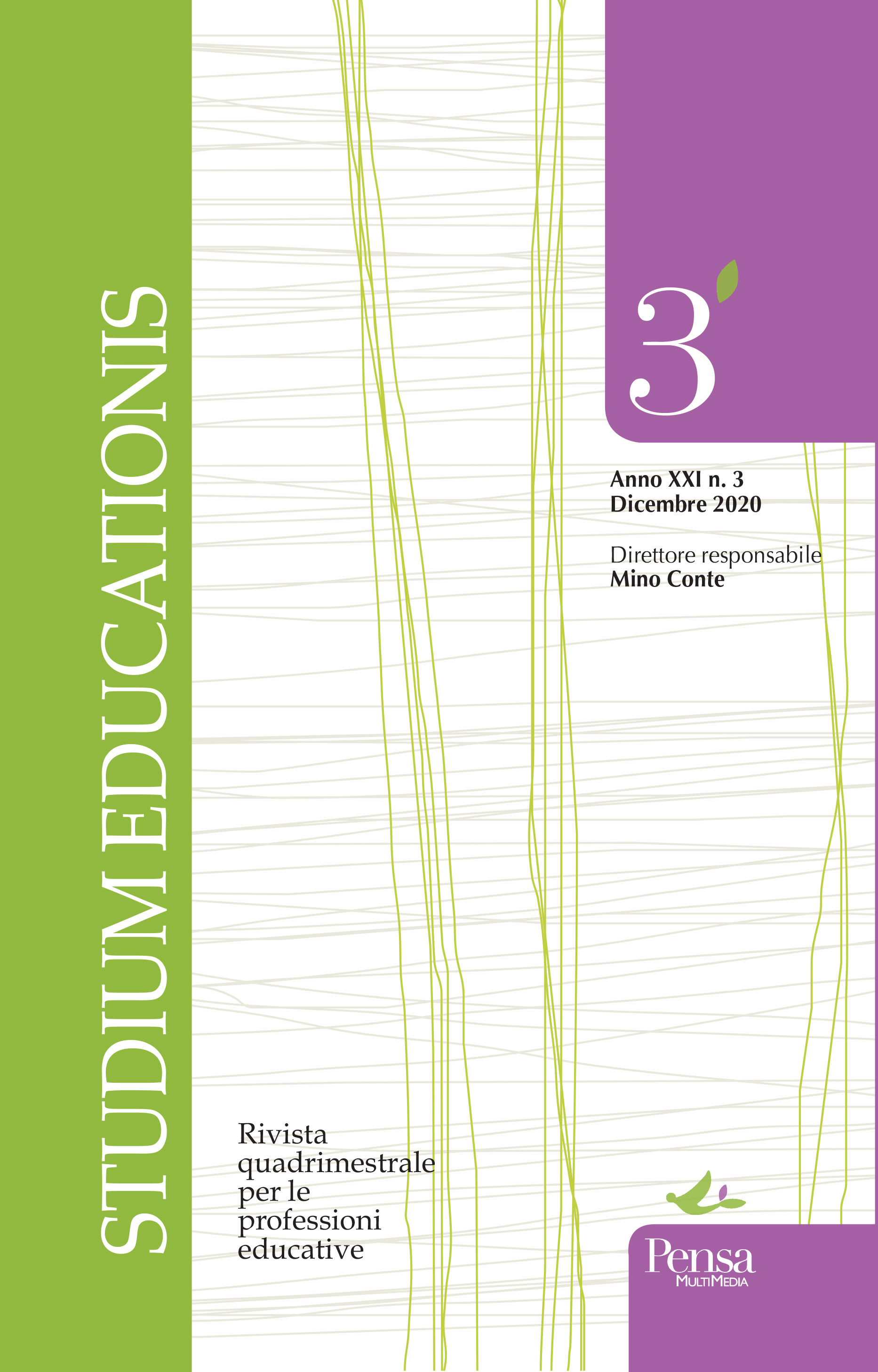Reading and memory fragments: learning in the school of digitalized contem-poraneity
DOI:
https://doi.org/10.7346/SE-032020-12Abstract
The pandemic has highlighted the temporal distortions (acceleration and sus-pension) in contemporary society and in schools. In the digitalized contempo-raneity, distance teaching emerged as an emergency, temporary and partial so-lution. The problem of the relationship between learning and technological de-vices raises incisively. Studies on changes in cognitive processes (reading and memory) deriving in part from the habit of persistent use of ICT, raise questions about the school of the future. What role will deep reading play in a hyper-accelerated context (in which reading has been fragmented)? How can we re-member if the time for long-term memory will be increasingly eroded by the continuous and volatile multimedia stimuli? The contribution aims to answer these questions, expanding theoretically Wolf's proposal on the need for bi-literacy (alphabetic and digital) for learning.


